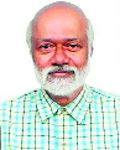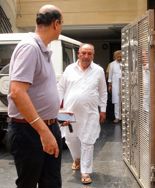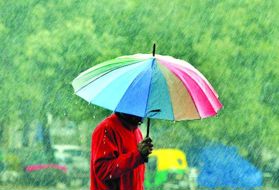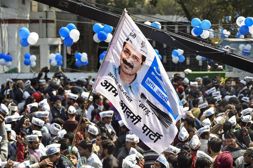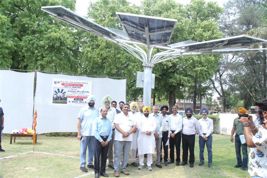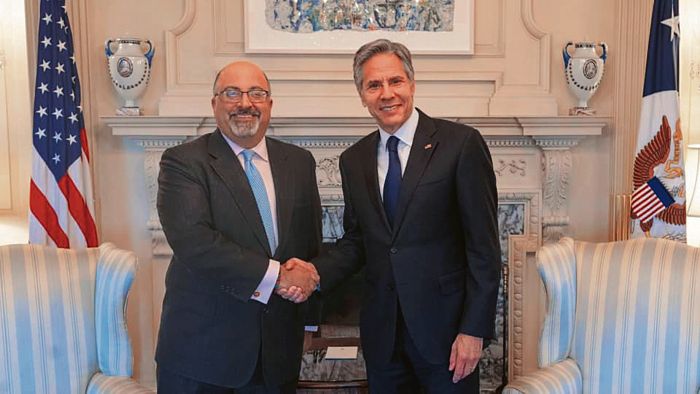
New innings: Atul Keshap (left) with US Secretary of State Antony Blinken. Twitter
KP Nayar
Strategic Analyst
The appointment of Atul Keshap as the US Chargé d’affaires ad interim in New Delhi last week is the clearest signal yet of where the Joe Biden administration’s India policy is headed. For four years under Trump, the US had no India policy, only knee-jerk reactions. Keshap, who air-dashed to New Delhi within three days of his appointment and took charge of the US mission in the national capital’s diplomatic enclave of Chanakyapuri on Friday, will be a stable hand at the large outpost and work on a road map for the future.
Most US embassies in the world are now without ambassadors and are run by Chargé d’affaires. Abbreviated in colloquial diplomatic parlance as Chargé, they will hold fort for many more months since Biden is yet to nominate most of his ambassadors of choice. The US Senate may then take its own sweet time to confirm these nominees before they can proceed to their respective embassies.
Assumption of office by a Chargé is usually a routine change of chairs, an internal affair at an embassy in most cases because a Chargé is usually no more than a stand-in for the permanent head of mission. Most often it is the Deputy Chief of Mission (DCM), the serving number two in an embassy, who fulfils the role of a Chargé in the absence of an ambassador. Therefore, such an elevation is rarely a matter of any public interest.
The well-publicised announcement in Washington that Keshap will go to New Delhi as Chargé, therefore, stands out. Since Antony Blinken became US Secretary of State five months ago, the State Department has publicly announced the appointment of Chargés only on four occasions. One was the stand in posting of a career diplomat to next door Canada, arguably the most important bilateral relationship for Washington because the US and Canada are conjoined twins. Blinken has sent back as Chargé to El Salvador a diplomat who was ambassador there for three years until 2019. Since this is a decision with few precedents, he made a public statement.
It is not a coincidence that the other two announcements had to do with India. Exactly two months before Keshap’s appointment, the State Department made public the choice of his predecessor, Daniel Smith. During his short stint in New Delhi, every door that Smith knocked on, opened for him because he was acting US Secretary of State while Blinken was awaiting his Senate hearings and confirmation in the job. As soon as Biden was sworn in as President, he appointed Smith as acting Secretary of State.
Never before has the US sent someone as senior as Smith in the State Department’s professional hierarchy as a diplomat to India. In sending an acting Secretary of State as Chargé to New Delhi, the Biden administration signalled the importance it wants to accord India in its scheme of things. Hence a public acknowledgement that ‘Smith’s appointment underscores the strong US commitment to our partnership with the Government of India and the Indian people. He will spearhead close cooperation with India to ensure that our countries continue to advance our shared priorities, including overcoming the global pandemic,’ the State Department said at that time.
Smith was on the verge of retirement when he was appointed in New Delhi. It was Biden’s calculation that in less than two months that were left of Smith’s foreign service, the White House would be in a position to have a permanent head of mission in New Delhi cleared by the Senate and sworn in. But that did not happen. Biden and Blinken did not want their outpost in Chanakyapuri to be undermanned even for a few weeks because they have a vision for India in the making: knee-jerk reactions have put the relationship on a plateau for far too long. Therefore, Keshap was picked to replace Smith.
Like many of his predecessors who were Chargés or DCMs, Keshap will be the bedrock of the Biden administration’s India policy even after Roosevelt House, the ambassador’s residence in New Delhi, gets a new occupant: in all probability, Keshap will stay on as DCM. Because of Keshap’s wide-ranging experience in India and South Asia, which has been widely written about since his latest posting to New Delhi, he will be in the same class as the longest-serving Chargé to India in history, Kenneth C Brill.
When Brill became Chargé in March 1993, he expected to hold fort only for a few months. But it took a year and a half for President Clinton to find a new ambassador to India, have him confirmed by the Senate and sworn in. Brill was Consul General in Calcutta before he became Chargé in New Delhi. His experience was that on a posting in India, there are more things that count in order to be effective than foreign policy expertise. One of the things that helped Brill in Indo-US engagement in that difficult period was his close association with Mother Teresa from his three years in Calcutta in the 1980s.
Mother Teresa once went to Washington and on the spur of the moment called the White House switchboard one morning from a public telephone, asking if she could meet the US President. That very afternoon, the President met her. Brill recalled once that when he was head of Egyptian affairs at the State Department, it took him two months to convince the White House that the President should meet Hosni Mubarak during the Egyptian President’s travel to Washington. Brill’s association with Mother Teresa meant a higher profile for him back home too.
Keshap will easily find doors in India opening for him, not because he is Indian American, but because of his professional record. One disservice that Indians could do to him is in over-emphasising Keshap’s Indian heritage. He is a quintessential American, who considers Virginia as his home and the Indianness in him is only an accident of his birth. As much as being American, Keshap is an internationalist born in Nigeria. He and his three siblings grew up in Lesotho, Zambia, Afghanistan and Austria. The appointment to New Delhi came as a birthday gift because it was announced on
June 29, the day he turned 50.
Join Whatsapp Channel of The Tribune for latest updates.






